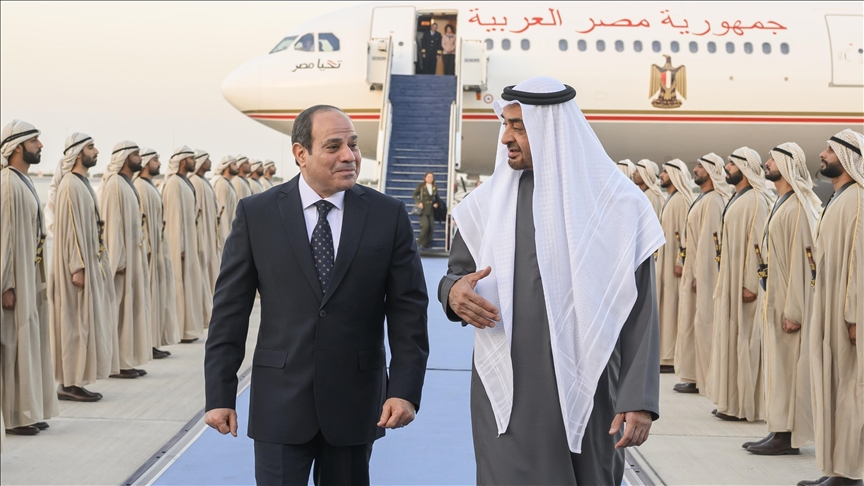Diplomatic meeting on Sudan war delayed after Egypt-UAE dispute

A diplomatic meeting on Sudan’s civil war between the United States, Saudi Arabia, the United Arab Emirates, and Egypt was postponed due to a dispute over the joint final statement, according to AFP via The New Arab on July 30th.
Two diplomatic sources revealed that Egypt and the UAE, countries seen as the key external influences on the war, could not agree on the roles the warring parties – the military and the paramilitary Rapid Support Forces – would adopt during a prospective peace process.
The country has been gripped by a catastrophic civil war since April 2023 after a power struggle between the RSF and the military triggered a violent conflict.
The Egyptian foreign ministry spokesman explained that the diplomatic meeting scheduled to be held in Washington between the four states, known as the Sudan quartet, was to establish a roadmap towards ending the war. The conflict has killed tens of thousands of people and caused what the United Nations has described as “one of the worst humanitarian crises of the 21st century.”
Speaking to AFP, an Arab diplomat who requested anonymity said that the meeting was cancelled over “an unresolved disagreement” about the joint final statement.
He continued that “the UAE inserted a last-minute change to include no presence for both the army and the RSF in the future transitional process,” adding that the stipulation was “totally unacceptable.”
Egypt, who has historically been the Sudanese army’s closest ally and has provided diplomatic and military support, reiterated the “importance of preserving Sudan’s national institutions.” Cairo predominantly aligns with the Sudanese military to guarantee a secure southern border and a Sudan willing to cooperate in Nile water sharing, which both states are heavily reliant on.
Ensuring such a future is particularly pressing following both the RSF’s seizure of a strategically crucial border area alongside Ethiopia’s completion of a mega dam on the Blue Nile, raising concerns that Addis Ababa now has the power to unilaterally dictate Egypt’s water supply.
Meanwhile, the UAE has been widely accused of arming the RSF, which violates a UN arms embargo on Sudan’s Darfur region. Sudan’s military-backed government also recently alleged that Abu Dhabi funnels weaponry to the paramilitary group via Kenya. Though the Emiratis vehemently deny the accusations, the evidence is widespread and comprehensive including reports from UN experts, diplomats, US politicians and international organisations.
The UN has repeatedly cautioned that external forces are fuelling the conflict in Sudan, which is rich in gold deposits – exports from which are almost exclusively channelled to the UAE.
A source in close proximity to the negotiations revealed that “the US circulated a draft that everybody accepted, including the UAE, but Egypt did not accept the part that said that the transitional period should not be controlled by any of the warring parties.”
The US then chose to postpone the diplomatic meeting to a later date.
Under the Biden administration, the US and Saudi Arabia sponsored numerous unsuccessful rounds of negotiations to initiate a peace process to end the brutal conflict, which experts warn has already spilled over into the surrounding region.
Both warring parties in Sudan have been accused of inflicting mass atrocities upon civilian populations across the country.
Sudan is currently divided as the military controls the north, east, and southern regions, whilst the RSF controls the vast western region of Darfur among other areas. The RSF and its allies recently established a rival government, which was promptly denounced by the military-backed administration.
AFP, The New Arab, World Food Programme, United Nations, Maghrebi.org
Want to chase the pulse of North Africa?
Subscribe to receive our FREE weekly PDF magazine













